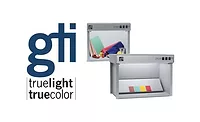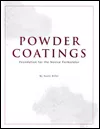New Automotive Standards Give Coatings Suppliers More Affordable Choices for Xenon Testing

Suppliers’ growing interest in testing the durability of exterior and interior automotive finishes was a noticeable trend at the recent American Coatings Show and Conference in Charlotte, NC. Visitors to Q-Lab Corporation’s booth, as well as those attending the conference session on automotive weathering test methods, were made aware of recent standards changes that give users of xenon testing a choice of more affordable equipment.
The Society of Automotive Engineers (SAE) published two new performance-based weathering test methods (J2412 and J2527) in January to replace the older, hardware-specific methods (J1960 and J1885). Publication of these new test methods was the result of years of development by the Automotive Materials Association and the SAE.
Q-Lab’s Ronald Roberts described the standards changes in his ACS conference presentation, Automotive Xenon Arc Test Methods: A Correlation Study. He discussed a cooperative research program conducted by Chrysler, BASF Corporation and Q-Lab to test the performance of the new test methods and to qualify newer xenon arc test equipment for use in automotive testing.
Following the guidelines of SAE J2413 to compare the performance of test equipment, the research team used standard reference material comparisons for initial correlation. Their next step was to study an array of 34 automotive materials in current use, including painted metal, coated plastics, uncoated plastics and various waxed finishes. Specimens were exposed in both flat array and rotating drum xenon testers, with instrumental color and gloss measurements performed at regular intervals. The research confirmed the efficacy of the performance-based approach to testing.
Roberts noted that the attendance at his presentation was larger than expected, and questions from the audience reflected concern about reducing the cost of testing.
A Choice of More Affordable Equipment
As a result of the newly published SAE J2527 (automotive exterior materials) and J2412 (automotive interior materials) standards, suppliers now have a choice of xenon test equipment, rather than being limited to specific models from one manufacturer. The change from standards specifically describing the type of hardware, to performance-based standards that describe test conditions, will reduce costs by allowing users to select from any type of equipment that meets the test parameters.A reliable and affordable choice for these test methods is the Q-Sun Xenon Test Chamber from Q-Lab. Q-Sun test chambers are used by companies worldwide to aid in selecting new materials, improving existing materials, or evaluating changes in formulation. Among several Q-Sun models, the Model Xe-3 offers the most comprehensive features for testing a wide range of automotive parts and components.
The Q-Sun Xe-3 is a full-sized, free-standing tester that provides larger capacity, easier operation and maintenance, and lower cost than other comparable xenon test chambers. It is equipped with three full-spectrum xenon arc lamps; the patented Solar Eye irradiance control system to maximize and measure lamp life; a choice of irradiance set points (340 nm or 420 nm); a choice of optical filters for daylight, window-glass and extended UV spectra; both chamber air temperature control and black panel temperature control; and a large specimen capacity. In addition, the patented AutoCal system allows quick and easy calibration.
Versatile specimen mounting is a key feature of the Q-Sun Xe-3’s large, easily accessible, slide-out tray. The near-horizontal specimen plane allows items of different sizes and shapes (including large 3-D parts) to be tested at the same time, without special specimen holders.
Options available with the Model Xe-3 include water spray, dual spray, a chiller and relative humidity control. For smaller testing requirements, the Q-Sun Model Xe-1 is a bench-top, flat array model with one xenon lamp.
For suppliers who are not ready to buy a xenon test chamber, Q-Lab offers Q-Sun test services at its accredited accelerated testing laboratories in Ohio and at Q-Lab Weathering Research Service near Miami, Florida. Testing with the Q-Sun is also available at several international locations.
Auto Industry's Response to Standards Change
Because Q-Sun models cost less to purchase and operate than comparable rotating-rack style xenon testers, the automotive industry has responded to the opportunity to use the newer equipment. Chrysler has approved the company-wide use of Q-Sun Xenon Test Chambers to meet SAE J2527 and J2412 requirements for testing automotive exterior and interior parts, components and materials. In addition to the Q-Sun’s reliability, major factors driving the decision were cost savings and confirmed correlation to outdoor results. Automotive coatings suppliers, such as BASF and PPG, also reduce testing cost by using the Q-Sun.For a copy of the technical paper, Automotive Xenon Arc Test Methods: A Correlation Study, request Bulletin LX-5030. Contact Q-Lab at (440) 835-8700 or info@q-lab.com.
Looking for a reprint of this article?
From high-res PDFs to custom plaques, order your copy today!





